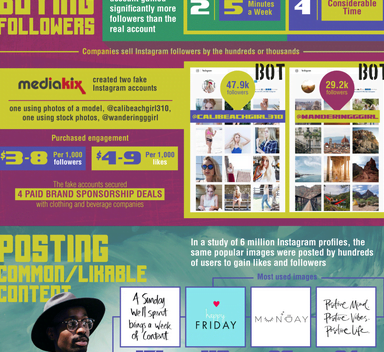Fake news is, well, in the news a lot lately. Some people think that fake news from Russia influenced the 2016 election cycle, while others think that fake news is anything with a viewpoint different from theirs. Whatever the case may be, fake news is often spread through the use of fake social media accounts.
Fake social media accounts were popularized by shows like “Catfished” in which unsuspecting people would make friends online only to discover they aren’t who they said they were. There was even an incident that made national headlines when an NFL player claimed to be engaged to one of these fake social media accounts.
So where do social media accounts come from? Remember there is a complete lack of verification, for better or for worse, when you make an online account. You can easily sign up for a new email and make yourself a new Twitter account right now. Get a few followers and you are ready to start spreading fake news or tricking people into sending you their social security numbers.
Between 2014 and 2016 the number of fake social media sites grew 11 times. As people get more comfortable with social media there is a greater level of trust in things online, which makes exploiting that trust both easier and more fruitful. We’ve all experienced getting a friend request from someone we are already friends with only to discover it was a spoof account, right? The purpose of such accounts is often to discover personal information about someone in order to steal their identity or publicly embarrass them.
So how do you spot fake social media accounts and fake news? There are often glaring warning signs that people ignore completely. For fake social media sites, look for photos that are of celebrities or of objects, lack of verification check marks for celebrities or brands, lots of followers with low engagement, and things like phrasings or topics that seem off. Fake news can be harder to spot. Look for spoofed domains, lack of credible sources, or things that are too weird to be true.
There are a few legitimate reasons to create fake social media profiles. People in the military or in certain jobs often have contracts preventing them from being able to speak out publicly about certain topics, or they are monitored for behavior. Or maybe they wanted to make a social media profile for a pet. But this likely represents a small fraction of the fake social media accounts online.
Learn more about fake social media profiles from this infographic from Social Catfish
Source: SocialCatfish.com





